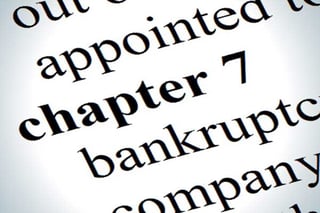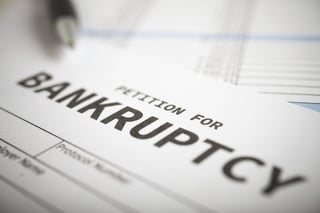 A discharge is a legal term used during bankruptcy and refers to the elimination of your liability from your debts. If you file Chapter 7 your discharge will be granted immediately upon case closing or if you file Chapter 13, your discharge occurs after you complete your repayment period.
A discharge is a legal term used during bankruptcy and refers to the elimination of your liability from your debts. If you file Chapter 7 your discharge will be granted immediately upon case closing or if you file Chapter 13, your discharge occurs after you complete your repayment period.
A bankruptcy discharge is easy to get if you are eligible to file bankruptcy, you properly complete and file all of your forms and you follow required proceedings. Although this sounds simple enough, it is highly recommended to work with a bankruptcy attorney to help you through the many intricacies and details that can be easily overlooked, especially in the state of stress and frustration. Varying bankruptcy Chapter qualifications and complex bankruptcy codes are just the beginning of the necessary elements to know and follow in order to receive a discharge.
Chapter Qualifications
Chapter 7 Bankruptcy:

The good news is that more than 99% of Chapter 7 cases, discharges are granted. However, you are not eligible for a discharge under a Chapter 7 if:
- Within the last 8 years, you filed a Chapter 7 and your debts were discharged.
- Within the last 6 years, you filed a Chapter 13 and your debts were discharged, unless
- You paid, in full, all “allowed unsecured” claims or
- You paid at least 70% of the allowed unsecured claims, the plan was proposed in good faith and payments were done with your best effort.
Additionally, the following are examples of debts that are non-dischargeable under Chapter 7, according to Bankruptcy Basics:
- Debts for alimony and child support
- Certain taxes
- Certain educational benefit overpayments or loans
- Debts for willful and malicious injury done by debtor
- Debts for death or personal injury
- Debts for certain criminal restitution
Chapter 7 grounds for denial, in which case your discharge will not be granted, according to Bankruptcy Basics:
- Failure to provide requested tax documents
- Transfer or concealment of property with intent to hinder, delay or defraud creditors
- Destruction or concealment of books or records
- Perjury and other fraudulent acts
- Failure to account for the loss of assets
- Violation of a court order
Chapter 13 Bankruptcy:

Under Chapter 13 you are not eligible for a discharge, according to Bankruptcy Basics, if:
- You received a discharge in a Chapter 7, 11 or 12 filed in the last 4 years.
- You received a discharge in a Chapter 13 in the last 2 years.
Non-dischargeable debts under Chapter 13 include:
- Certain long-term obligations
- Debts for alimony or child support
- Certain taxes
- Debts for most government funded or guaranteed educational loans or benefit overpayments
- Debts arising from death or personal injury caused by driving while intoxicated or under the influence of drugs
- Debts for restitution or a criminal fine included in a sentence of the debtor’s conviction of a crime
If your repayment plan is denied or you fail to complete your repayment plan after approval, you will not receive a bankruptcy discharge.
Bankruptcy Code
 Working with a bankruptcy attorney greatly increases your risk of avoiding violations of the bankruptcy code. There are a lot of elements to consider, forms to complete and information to provide; if you miss a step or leave out required information your case will be in jeopardy of being dismissed. Here are some of the major components of a bankruptcy filing that you should be aware of:
Working with a bankruptcy attorney greatly increases your risk of avoiding violations of the bankruptcy code. There are a lot of elements to consider, forms to complete and information to provide; if you miss a step or leave out required information your case will be in jeopardy of being dismissed. Here are some of the major components of a bankruptcy filing that you should be aware of:
- If you file bankruptcy you are not entitled to a discharge. In Chapter 7, the court allows creditor objections and has grounds for denial if you don’t follow court procedures. If you file a Chapter 13 bankruptcy you typically will receive a discharge IF you complete your repayment plan.
- If you file for bankruptcy, Chapter 7 or 13, you will be required to complete a financial management class. If this class is not completed, the court may deny your request for a discharge.
As you can see there is a lot to think through when filing bankruptcy. Talk to a bankruptcy attorney to learn more about the benefits and details of a bankruptcy discharge and how your life could be changed for the better if you choose to file.



